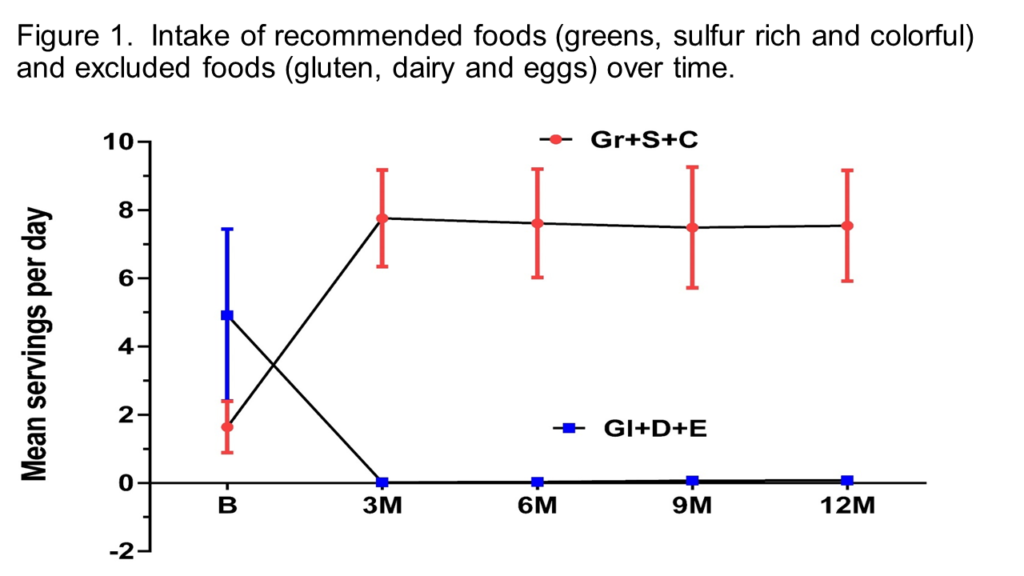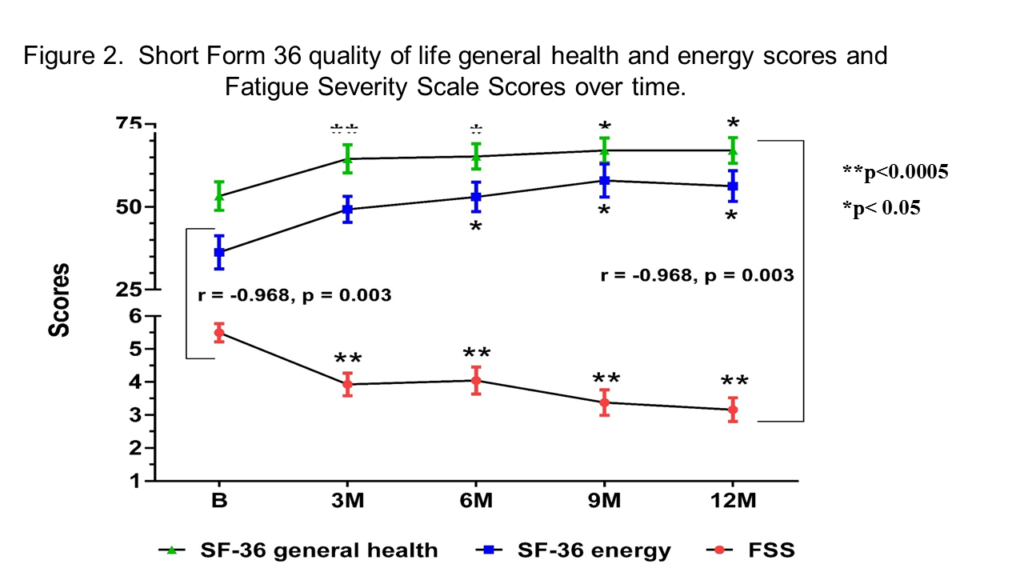 Dr. Terry Wahls is a clinical professor of medicine at the University of Iowa where she conducts clinical trials. She is also a patient with secondary progressive multiple sclerosis, which confined her to a tilt-recline wheelchair for four years. Dr. Wahls restored her health using a diet and lifestyle program she designed specifically for her brain and now pedals her bike to work each day. She is the author of The Wahls Protocol: How I Beat Progressive MS Using Paleo Principles and Functional Medicine, The Wahls Protocol: A Radical New Way to Treat All Chronic Autoimmune Conditions Using Paleo Principles (paperback), and the cookbook The Wahls Protocol Cooking for Life: The Revolutionary Modern Paleo Plan to Treat All Chronic Autoimmune Conditions.
Dr. Terry Wahls is a clinical professor of medicine at the University of Iowa where she conducts clinical trials. She is also a patient with secondary progressive multiple sclerosis, which confined her to a tilt-recline wheelchair for four years. Dr. Wahls restored her health using a diet and lifestyle program she designed specifically for her brain and now pedals her bike to work each day. She is the author of The Wahls Protocol: How I Beat Progressive MS Using Paleo Principles and Functional Medicine, The Wahls Protocol: A Radical New Way to Treat All Chronic Autoimmune Conditions Using Paleo Principles (paperback), and the cookbook The Wahls Protocol Cooking for Life: The Revolutionary Modern Paleo Plan to Treat All Chronic Autoimmune Conditions.
You can learn more about her work at her website, www.terrywahls.com. She conducts clinical trials that test the effect of nutrition and lifestyle interventions to treat MS and other progressive health problems. She also teaches the public and medical community about the healing power of the Paleo diet and therapeutic lifestyle changes that restore health and vitality to our citizens. She hosts a Wahls Protocol Seminar every August where anyone can learn how to implement the Protocol with ease and success. Follow her on Facebook (Terry Wahls MD) and on Twitter at @TerryWahls. Learn more about her MS clinical trials by reaching out to her team [email protected].
The conventional thinking on multiple sclerosis (MS) is to prescribe disease-modifying drugs to reduce inflammation. There is very little attention paid to the potential for the brain and spinal cord to repair themselves. Once the disease converts to the progressive phase, the conventional thinking is that functions once lost are gone forever. I have had remarkable success in my own life, reversing 7 years of steady decline due to progressive MS by changing my diet and physical activity. I have used the same interventions on others with progressive multiple sclerosis and relapsing-remitting MS, helping them reduce the severity of fatigue and improve their quality of life.
Let me summarize the key points that I have reported in our papers. The first study examined feasibility and safety. Our intent was simply to show that people could adopt and sustain the intervention, that the intervention did not have major adverse side effects, and that the trend was moving in the correct direction. We had 18 people with secondary progressive MS and two with primary progressive MS in the study. Two subjects were men. The average disability score placed people between cane and walker dependence. They were severely fatigued with an average fatigue severity scale score of 5.3 on a scale of 1 (no fatigue) to 7 (total fatigue).
People were able to adopt and sustain the interventions. The intervention was the diet I used in my recovery, which I now call the Wahls™ Diet; it included vitamins and supplements, stress reduction, and an exercise program coupled with electrical stimulation of muscles. The study diet was a structured Paleolithic diet, eliminating gluten, dairy and eggs, and stressing vegetables (especially greens, sulfur-rich vegetables, and deeply pigmented vegetables).
We demonstrated that people were able to adopt and sustain the study diet for 12 months. At baseline people were consuming almost 5 servings of gluten, dairy, and eggs per day (see Figure 1). At 12 months, they had removed the excluded foods from the diet and successfully kept those foods out of the study diet. The nutrition research has consistently demonstrated that to maintain this level of change in diet, the new diet needs to be associated with symptom reduction.
The primary outcome measure was the change in fatigue severity. In addition, we collected a number of quality of life measures. We needed to show only that the trend was in the right direction. Not only was the trend in the right direction, we had a p value of < 0.0005 and a clinically meaningful reduction in fatigue severity (see Figure 2). We also demonstrated statistically significant improved energy and quality of life as measured by the Short Form 36 general health and energy quality of life scales. Here is a link to the paper.
We have additional data from this study that we are continuing to analyze and report. The Journal of the American College of Nutrition will publish our next paper from this study in their March/April issue. This paper presents the favorable and statistically significant changes in mood and cognition (verbal and non-verbal memory) that we observed. The strongest associations between favorable changes in mood, cognition, and fatigue were observed in those complying with increased vegetable intake. Next was the avoidance of excluded foods. Dietary compliance was more powerful than compliance with stress reduction or exercise.
We have secured funding to complete some additional analyses on our data. This includes analyzing the changes in gait and balance and correlating those changes with compliance over time. We have brain structure and connectivity data obtained from MRI and functional MRI data from 9 subjects. We also have blood biomarkers and nutrient intake to analyze. Thus, we anticipate three more papers coming from this first study.
We also have data from another study, a randomized controlled trial in the setting of relapsing-remitting MS. In this study people were randomized to follow the modified Paleolithic diet or to wait 12 weeks to begin the study diet. We found statistically significant reduction in fatigue severity, improved gait, and improved hand function in the intervention group as compared to the control group.
Save 70% Off the AIP Lecture Series!
Learn everything you need to know about the Autoimmune Protocol to regain your health!
I am loving this AIP course and all the information I am receiving. The amount of work you have put into this is amazing and greatly, GREATLY, appreciated. Thank you so much. Taking this course gives me the knowledge I need to understand why my body is doing what it is doing and reinforces my determination to continue along this dietary path to heal it. Invaluable!
Carmen Maier

We used the preliminary data from both studies to apply for a grant from the National MS Society to study dietary approaches to treating MS related–fatigue. We were funded and the study is underway. We observe subjects for 12 weeks following their usual diet. Then they are randomized to follow either the Swank Diet (low saturated fat) or the Wahls Diet and are followed for another 24 weeks. Changes in fatigue are the main outcome measure but we also monitor steps taken each day and a number of quality of life measures. To learn more about the study and see if you qualify, check this link.
Another study that is underway is a chart abstraction study to examine the outcomes in the Therapeutic Lifestyle Clinic at the Iowa City VA. In this clinic we used diet and lifestyle interventions to address chronic disease and emphasize dietary changes as the most critical part of the program. We taught people how to cook using recipes (not pre-packaged mixes). As a result, pain reduces, energy improved, blood sugars and blood pressure normalized, and mood improved. Usually people noticed favorable changes within 6 weeks. Clinically we observed meaningful improvements in people with a wide variety of autoimmune issues, diabetes, obesity, heart disease, fatty liver, mental health problems, neuropathy, chronic pain, and mental health issues. The chart abstractions will allow us to quantify those changes more precisely.
The next grant we are developing will use the dietary approaches to treating MS related–fatigue to help patients with Amyotrophic Lateral Sclerosis (ALS). We are doing this based on multiple reports from patients with ALS who have adopted the Wahls Protocol® and had a favorable response to stabilizing their disease.
For anyone with a neurodegenerative disorder, autoimmune disorder, mental health problem, or diabetes, there is considerable potential benefit from adopting the dietary and lifestyle protocols that we have been using in our study of MS. The good news is that I have written books for the public to teach people why and how to make these changes. If you want to begin implementing the concepts that I use in the MS clinical trials, pick up The Wahls Protocol: A Radical New Way to Treat All Chronic Autoimmune Conditions Using Paleo Principles, and work with your primary care doctor to implement as much of the protocol as you and your family can. I have also written the companion cookbook, The Wahls Protocol Cooking for Life. In this book I provide guidance on how to easily and affordably implement the protocol (both in terms of money and time). When you order the cookbook, you’ll receive links to free resources to get you started immediately on your journey back to health. I got my life back. You can too, one delicious meal at time!
The links to our Nations MS Society funded research:
Two studies in Bastyr University that are asking patients with MS or Parkinson’s disease about whether they are following the Wahls™ diet:












